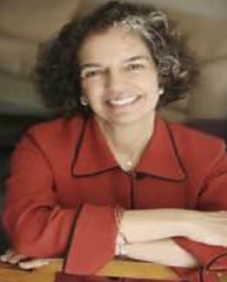Instructor: Rebecca Shahmoon-Shanok, LCSW, Ph.D.
Dates: Tuesday Evening, October 29th & November 5th, 2019
Time: 5pm – 9pm
CE: 8 Contact Hours
With an emphasis on typical parental functioning, this course will provide students with information on the different developmental models and theoretical constructs involved in understanding various aspects of family functioning—especially parental development over time and the evolving parent-child relationship –and their impact on parent development during their child’s infancy and early childhood. This course emphasizes typical development with sidelines in psychopathology for the express purpose of reaching parents and working with them and the dyad effectively. Using discussion-centered instruction, we will build a shared understanding and shared language. How to apply the knowledge in professional practice will also be cultivated with vignettes and discussion relating to participants’ own practice challenges, especially with outreach. Participants will continue to review their discipline and systems’ approaches to intervention through a nuanced lens that is developmental, body-based, social-emotional, trauma-informed, and attachment sensitive.
Participants will:
- Think about how to work towards parent’s understanding of their own role in their children’s development
- Recognize the provider’s impact upon parents and how to use it
- Learn to consider the primary dyad as a unit of observation and intervention
- Become more familiar with typical parent psychological development and about how to identify a parental need
- Become more able to do outreach with hard-to-reach parents
- Recognize the all-important role of system guidelines and of self-among all participants in our work, clinician-parent, parent-parent, and parent-child
- Recognize the importance of mutual effect, parent on child AND child on parent, as well as provider upon parent: Interpersonal
Who should sign up for this workshop?
Anyone, student or graduate, from any profession or system, especially those which serve children six- years and under. Others who want to improve their supervision skills and understanding are also welcome.
About the Instructor:
 Dr. Shahmoon-Shanok is the CEO and Academic Director of Collaborations for Growth, a new nonprofit dedicated to making excellent training in the 0-5 field more widely available. She also serves as Senior Research Associate at the New School for Social Research’s Center for Attachment Research for their investigations into Relationships for Growth & Learning (RfGL), a model described below. She is known as a clinician, teacher and author in the pregnancy and parenting through preschool fields; is among the developers of reflective supervision; of integrating mindfulness into the fields of early childhood mental health and care; of interweaving mental health services in community-based settings; and of training professionals across disciplines together since 1980. With degrees and experience as clinical psychologist, social worker and early childhood educator, and extensive experience in psychoanalysis, infant mental health, mindfulness, and in developmentally and/or traumatically challenged young children and their parents, Dr. Shahmoon-Shanok developed RfGL, an identification and intervention model that integrates mental health consultation plus a range of effective mental health services within childcare and Head Start utilizing peer play psychotherapy for a variety of children with serious challenges. She is a CPP Trainer. After participating in Undoing Racism Workshops over a dozen years, she has participated in the Harris Foundation’s Tenets Workgroup since 2012. Founding CEO/Academic Director of Collaborations for Growth and Senior Research Associate for Relationships for Growth & Learning, Center for Attachment Research, New School for Social Research, she served as board member of Zero to Three for thirty-six years and is the founder of the New York Zero-to-Three Network, continuing on its board. Dr. Shahmoon-Shanok currently gives workshops and short courses on reflective supervision, and co-chairs the Reflective Supervision Collaborative which is becoming the first long-term training for reflective supervisors and trainers across the country and an online clearing house of RS materials.
Dr. Shahmoon-Shanok is the CEO and Academic Director of Collaborations for Growth, a new nonprofit dedicated to making excellent training in the 0-5 field more widely available. She also serves as Senior Research Associate at the New School for Social Research’s Center for Attachment Research for their investigations into Relationships for Growth & Learning (RfGL), a model described below. She is known as a clinician, teacher and author in the pregnancy and parenting through preschool fields; is among the developers of reflective supervision; of integrating mindfulness into the fields of early childhood mental health and care; of interweaving mental health services in community-based settings; and of training professionals across disciplines together since 1980. With degrees and experience as clinical psychologist, social worker and early childhood educator, and extensive experience in psychoanalysis, infant mental health, mindfulness, and in developmentally and/or traumatically challenged young children and their parents, Dr. Shahmoon-Shanok developed RfGL, an identification and intervention model that integrates mental health consultation plus a range of effective mental health services within childcare and Head Start utilizing peer play psychotherapy for a variety of children with serious challenges. She is a CPP Trainer. After participating in Undoing Racism Workshops over a dozen years, she has participated in the Harris Foundation’s Tenets Workgroup since 2012. Founding CEO/Academic Director of Collaborations for Growth and Senior Research Associate for Relationships for Growth & Learning, Center for Attachment Research, New School for Social Research, she served as board member of Zero to Three for thirty-six years and is the founder of the New York Zero-to-Three Network, continuing on its board. Dr. Shahmoon-Shanok currently gives workshops and short courses on reflective supervision, and co-chairs the Reflective Supervision Collaborative which is becoming the first long-term training for reflective supervisors and trainers across the country and an online clearing house of RS materials.
QUESTIONS ABOUT THE COURSE: (212) 396-7610




